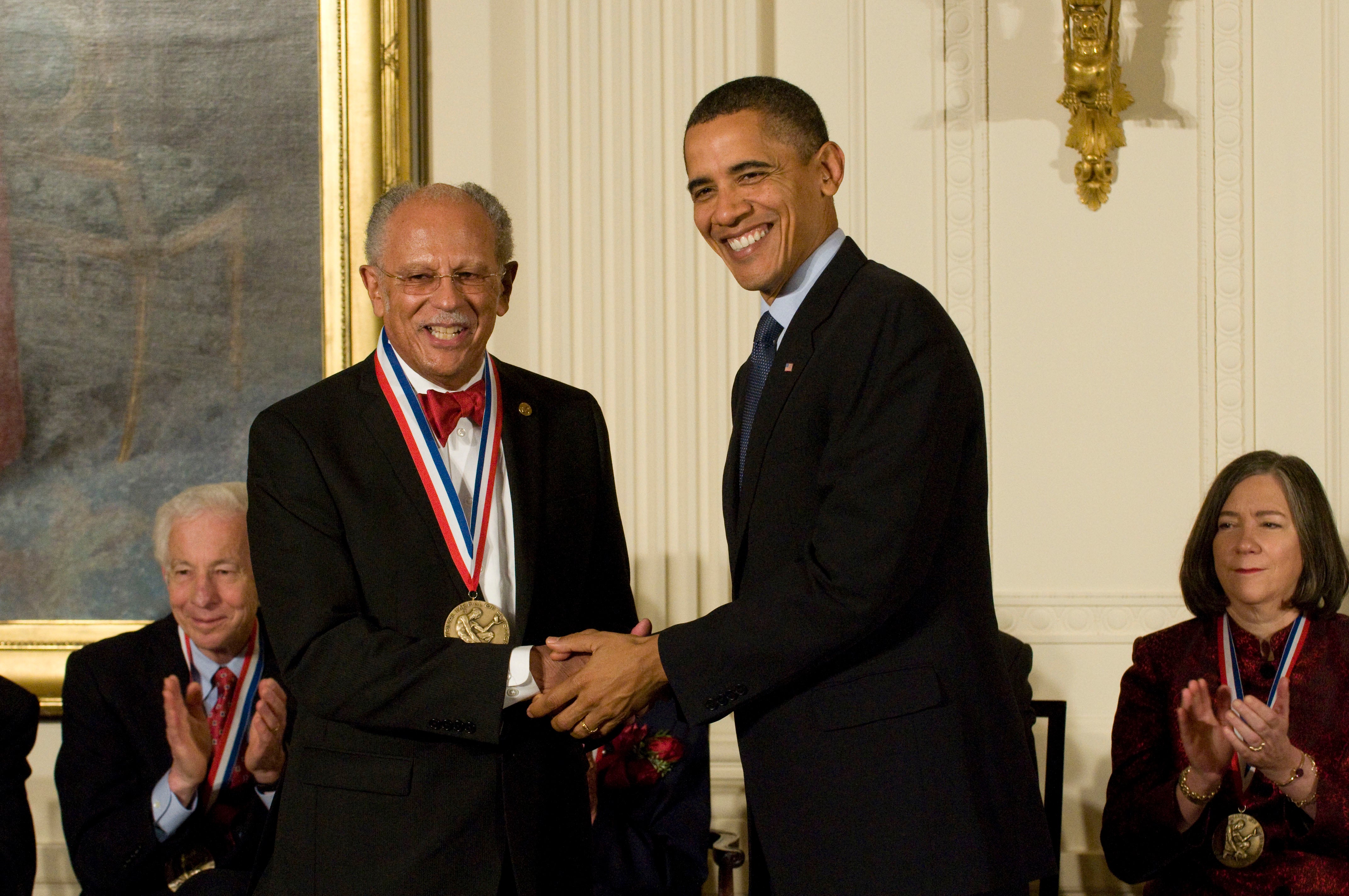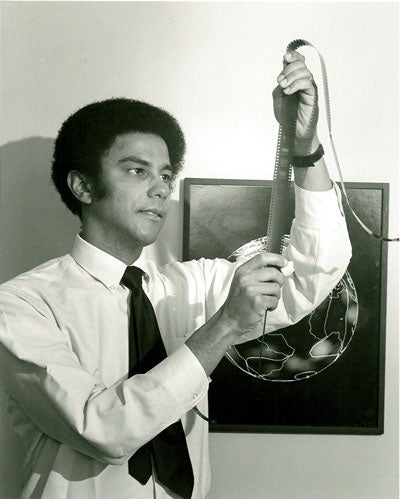NSF NCAR and UCAR mourn the passing of Distinguished Scholar Warren Washington
Washington’s legacy lives on in NSF NCAR’s mission and models
Oct 21, 2024 - by Staff
Oct 21, 2024 - by Staff

Warren Washington receives the National Medal of Science from President Barack Obama. Copyright 2010 Ryan K Morris Photography and National Science & Technology Medals Foundation, used with permission.
Warren Washington, internationally recognized expert on atmospheric science and climate research and distinguished scholar at the U.S. National Science Foundation National Center for Atmospheric Research (NSF NCAR) passed away last week at the age of 88.
Washington began his career at NSF NCAR in 1963 only a few years after the center was established. He saw the job as an opportunity to be part of something new, choosing the position over another that paid more and was closer to family.
In 1964, Washington and fellow scientist Akira Kasahara launched the center’s effort to build one of the first general circulation computer models of the atmosphere. Washington and Kasahara’s model cemented NSF NCAR’s place among the leading climate modeling centers in the world, and together with its successors, provided foundational knowledge that helped scientists begin to understand Earth’s climate as well as anthropogenic climate change. Washington also co-authored An Introduction to Three-Dimensional Climate Modeling, which is a standard reference in the field.

Washington was the second African American to receive a doctorate in atmospheric sciences and is a role model for generations of young researchers from many backgrounds. His passion for education and science as vehicles for social change motivated him to mentor dozens of graduate and undergraduate students in the NSF Significant Opportunities in Atmospheric Research and Science (NSF SOARS) program – an undergraduate-to-graduate bridge program designed to broaden participation of historically underrepresented communities in the atmospheric and related sciences.
“Warren Washington was an important trailblazer for Black and underrepresented scientists, including myself,” said Everette Joseph, NSF NCAR director. “Warren didn’t just move the field of atmospheric and climate science forward — he moved the atmospheric and climate science community forward. Both the scientific advancements we have achieved and the culture of atmospheric science are better because of his contributions. I know his impact will continue to ripple throughout the Earth system science community for generations to come.”
Washington engaged in research and scientific advocacy for over 50 years. He advised six presidents, held positions on several environmental and meteorological boards and committees, and was recognized with numerous prestigious scientific awards, including receiving the National Medal of Science in 2010 from President Barack Obama. In 2020, The American Meteorological Society created an award in his honor to recognize outstanding researchers that also display scientific leadership in the atmospheric and related sciences.
Despite his many monumental achievements, he was a gracious leader who is remembered by many for his kind nature and boundless optimism. He was an invaluable colleague, civic scientist, and champion of diversity who will be deeply missed. Although he is gone, his legacy remains in NSF NCAR’s continued work to keep improving Earth system models in collaboration with our community and our mission to use knowledge and technology for the betterment of life on Earth.
“Warren was a kind and generous scientist, mentor, and friend, and he will be missed by so many staff at NSF NCAR, UCAR, and the larger community” said Antonio Busalacchi, president of the University Corporation for Atmospheric Research (UCAR), which manages NSF NCAR. “His commitment to mentoring the next generations of scientists was obvious and deeply held, and we hope to continue that legacy.”